 Poor record keeping has been cited as one of the major
challenges many farmers in Kenya face in management of their farms, as many of
them are unaware about the importance and value of record and information
management.
Poor record keeping has been cited as one of the major
challenges many farmers in Kenya face in management of their farms, as many of
them are unaware about the importance and value of record and information
management.
This will be done through the
introduction of Farm Record Management Information System – Kenya (FARMIS
Kenya). FARMIS Kenya is run by Sokopepe
Ltd, a social enterprise under license from Fit Uganda. FARMIS seeks to be the leading provider of ICT business solutions for farmers in East Africa by transforming the way farmers carry out record keeping.
The tested system enables farmers to capture a farmers profile and
record all their farming enterprises capturing costs of tilling, inputs,
labour, harvesting and post-harvest operations for crops and similar records
for livestock. By doing that a farm’s total productivity is documented and
farmers are able to extract a profit and loss statement at the end of each
season.
It comes with various benefits such as: improved automated record keeping, current market information, enhanced access to credit facilities, evidence-based decision making, access to 24 hour online platform, opportunity
for group produce marketing, seasonal farm books provided for reference, market
linkages to buyers and sellers and access to relevant farming tips.
“Proper record keeping is important as it will help you to
know whether you are making a profit or loss. When you keep your records well
it will be easier to monitor your farming activities, determine which business
line in your farm is breaking and even the ones that are eating into your profit
margins,” said Mwangi - Sokopepe LTD at a launch event in Laikipia.
 FARMIS will allow farmers to jointly coordinate a number of related activities at the farm,
supported by data analysis, storage, and retrieval for possible linkages to
partners or stakeholders.
FARMIS will allow farmers to jointly coordinate a number of related activities at the farm,
supported by data analysis, storage, and retrieval for possible linkages to
partners or stakeholders.
Registered farmers will purchase a Farm Book at Kshs. 850
per year for better records keeping and management. The system will also
generate interactive reports like ledger reports, profit and loss accounts and
balance sheet.
“Every year a farmer will be able to receive a progress
report on his farming activities. Formalizing your farm records will help you
as a farmer to improve your economic gains and increase profits,” said Mwangi.
He added: “Effective record keeping and information management is key to the
running of a successful agri-business. Good record keeping can help a farmer to
track his expenses and determine the ‘financial sinks’ in the farm.”
Currently in Ndhiwa, we are performing primary farmers profiling at no fee and we are targeting over 2000 farmers possibly by September 2014. If you are a farmer no matter you scale of production, please do not let this opportunity slip out of your arms. The exercise is on going and if we do not manage to reach you, please reach us via Ndhiwa Maarifa Centre. For more information click Farmis Kenya Site
